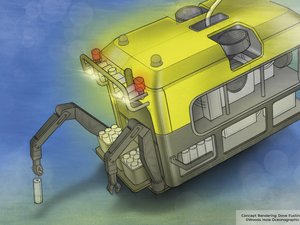Sure as snow will fall during a New England winter, so too will garbage line the streets of Boston saving parking spaces dutifully shoveled out.
Like our lack of Happy Hour, the dreaded Allston Christmas or a transit system that's perpetually delayed, the rampant use of parking space savers has long since become part of the tradition around here. While walking to work after a night of snow, you might chuckle at the sea of lawn chairs strewn before you. "Oh, Boston," you'll sigh to yourself as you walk past, smiling. "You're so quirky."
Even when the quirkiness turns aggressive – as it did in early January when a Southie resident told a clueless space-saver-ignorer another such affront would lead to serious car damage ("This is your first warning. DO NOT FUCK WITH ME.”) – it's laughed off. Things are done a certain way here in Boston. And if you don't like it, well, someone is going to "key the shit out of your car and slash your tires."
“Whether you like it or not, those who fail to follow the unwritten rules of the space saver in these parts should be prepared to tango with deeply vengeful neighbors willing to threaten or inflict harm on them and their property,” writes Spencer Buell of Boston magazine, adding, “space saver street justice is a cherished tradition around here.”
He's right. But I think it's time it became a forgotten tradition rather than a cherished one. And I think that's got to start with City Hall.
It's here I'll acknowledge I might be in the minority on whether space savers should be accepted as a way of life. Lots of people I know feel very strongly that spending an hour shoveling out your car should entitle you to that spot for a while. I disagree. But more importantly, I think the practice has gotten out of hand. It needs a system. And the City's system is broken.
Everyone knows where Mayor Marty Walsh stands. It's not implied; it's written right out on the City's website.
“Did you use a trash can, cone, or some other object to save your parking space on the street?” the City’s snow page reads. “You can only use a space saver when the City declares a snow emergency, and you must remove it 48 hours after we end the emergency.”
Of course, nobody follows those rules. (The author of “the note” certainly didn’t.) And why would they? Space savers are a way of life here, thoroughly sewn into the fabric of our city’s psyche. DPW workers continually collect unauthorized space savers, adding them to a growing pile throughout the winter. But no written warnings are handed out. You can’t be fined if you ignore the rules. At worst, you’ll lose the piece of garbage saving your spot. And probably the spot itself.
Parking is getting serious in Boston #juno2015 #Blizzard2015 @stoolpresidente @davidwade @BreeSison @LisaWBZ pic.twitter.com/PkwajRe6jn
— Mark Donovan (@mdboston10) January 29, 2015
I’m not from here. I grew up in Maine where everyone has a driveway, a garage and a kindly word to say to neighbors and strangers alike. But I’ll admit, as I have before, I am anti-space-saver. And I think it’s long overdue for the City to reassess its position on the same.
"The city will support individual neighborhoods that decide to ban space savers if the decision has been made following a robust community process that involves engagement from residents, public meetings, education and outreach to affected businesses, restaurants and residents,” Mayor Marty Walsh’s Associate Press Secretary Sam Ormsby told me.
The litmus test here – the only one, actually – is the South End, who in 2014 banned the use of space savers outright after an extensive campaign of community outreach levied by the South End Forum and chair Stephen Fox. The following year, they put together a crowdfunding campaign to pay for damage resulting from space saver disputes, of which there were seven.
“Last year,” Fox told me, “minimal snow, no space savers seen anywhere, no incidents. This year, we're hoping for the same.”
So far, other neighborhoods haven’t followed the South End’s lead. But, said Fox, it’s starting to happen.
“All the downtown neighborhood associations (North End/Waterfront, Chinatown, Beacon Hill, Back Bay, Bay Village and Fenway) have formally petitioned the Mayor's Office to join with the South End in banning space savers throughout the entire downtown area,” he said.
Boston can and should do better.
Leading that charge is Ford Cavallari, the president of the North End/Waterfront Residents' Association last year and now the chairman of the Alliance of Downtown Civic Organization, "representing the nine largest residents’ organizations of downtown Boston, from Fenway to Chinatown and from the North End to the South End."
"In 2015, NEWRA joined eight other ADCO member associations in opposing the concept of space savers," Cavallari told me. "In downtown, population density is just too high and parking too short in supply for a loose, unenforceable, socially polarizing guideline like space savers to make sense."
In 2015, Cavallari presented Mayor Walsh with a letter in opposition of space savers, imploring that the City of Boston "refuse to recognize 'parking space savers' of any kind, for any reason, in downtown Boston," an area defined to roughly encompass Downtown, the North End, West End, Back Bay, the Financial District and Fenway.
"Space savers are bad public policy, substituting a loose, unenforceable guidelines for a law when a law is needed," Cavallari said. "As it stands, space savers create an 'animal farm' social structure where those who can dig out spaces are more equal than others. Boston can and should do better."
The city, of course, doesn't condone any violence as a result of space saver spats. "The City will not tolerate any violent acts or destruction of property and encourages residents to contact the BPD if these incidents occur," Ormsby said.
But the City does condone parking space savers. And to me, that's the root of the problem. Its approach so far is to put the burden of proof on the shoulders of neighborhoods; if those associations can drum up enough resident support, then they'll have the support of the City, too.
"As long as the Mayor's Office feels confident that this is really supported in these neighborhoods (like it was for the South End), then they will move forward to support," Fox said. "But nothing will happen until a little homework is complete."
Fox said the North End, Beacon Hill and Back Bay "are all working to get the word out and assess the level of support," meaning if a ban is going to come to any other neighborhood those will likely be next.
But you never know. And in the meantime, nasty notes will continue to be plastered on windshields, key marks found in doors that weren't there the night before, when the snow first started to fall.
It's all well and good now, while snow has been light and, as such, vengeful parking space shovelers left with little to complain about. But what might happen during the next official snow emergency? Or, you know, if The Great Snowpocalypse of 2014 repeats itself?
Without a tougher stance from Mayor Walsh or a change to the current policy, quirky old Boston will to uphold its "cherished tradition."
And what else can we do but smile, shake our heads and keep walking?








